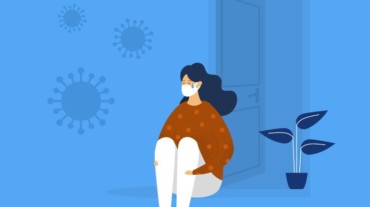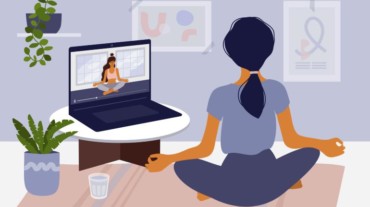
Since the time this lockdown has been imposed upon us we have been hearing one common grievance – That it is making the people anxious and depressed. As everyone’s life has come to a standstill people aren’t able to adapt themselves with this situation. And the worst part is that experts are saying that this impact of covid-19 on your mental health might last even once all this is over.
As people across the world adopt physical distancing measures to slow down the Covid-19 pandemic, researchers have assessed the consequences that self-isolation will have for mental health and well-being in both the short and long term.
According to an analysis, published in the Journal of the American Medical Association, these consequences are so important that immediate direct intervention efforts are needed to address the impact of the outbreak on individual and population level mental health.

It’s been witnessed that epidemic and pandemic lead to mental distress
Scientists, including those from Boston University School of Public Health in the US, said large-scale disasters, whether traumatic such as mass shootings, natural phenomena like hurricanes, or environmental disasters like the Deepwater Horizon oil spill, are almost always accompanied by increases in depression.
They said cases of posttraumatic stress disorder (PTSD), substance use disorder, other mental and behavioural disorders, domestic violence, and child abuse may also increase following such episodes.
For such events, the researchers said, the impact on mental health can occur in the immediate aftermath and then persist over long time periods.
With the COVID-19 pandemic, they said there may be substantial increases in anxiety and depression, substance use, loneliness, and domestic violence.
Also, listen:
As schools remain closed, there may also be an epidemic of child abuse, the report cautioned.
Select Topics of your interest and let us customize your feed.
PERSONALISE NOWThese steps can help you get out of mental distress
According to the scientists three steps, taken now, can help governments across the globe proactively prepare for an increase in mental health conditions triggered by the pandemic.
1. They said, it is necessary to plan for the inevitability of loneliness and its sequelae as populations physically and socially isolate and to develop ways to intervene.
2. Using digital technologies, social distance can be bridged even while physical distancing measures are in place, the researchers noted.
3. Normal places of congregation, such as gyms, and yoga studios, can conduct online activities on a schedule similar to the ones in place before social distancing, the scientists said.
Also, listen:
Researchers say, some workplaces are creating virtual workspace where people can work and connect over video connections, so they are not virtually alone,” they noted in their analysis.
The researchers said employers should ensure that each employee receives daily outreach during the work week, through a supervisor or buddy system, just to maintain social contact.
Stay connected using various digital tools so that you don’t feel lonely
Efforts should be made to ensure connections with people who are typically marginalised and isolated, including the elderly, undocumented immigrants, homeless persons, and those with mental illness, the scientists said.
Using social media, they said, groups could be connected, while also directing individuals to trusted resources for mental health support.
For children who are out of school, ensuring that they have access to regular programmed work is important, according to the scientists.
While online substitutes for daily routines, as mentioned above, can be extremely helpful, not all children have access to technologies that enable remote connectivity, they cautioned.

The efforts should be made to bridge this gap, the report said
Mechanisms for surveillance, reporting, and intervention, particularly, when it comes to domestic violence and child abuse are critical, it added.
“Individuals at risk for abuse may have limited opportunities to report or seek help when shelter-in-place requirements demand prolonged cohabitation at home and limit travel outside of the home,” the researchers explained in the report.
Systems for social distancing with the availability of safe places for people at risk, and social services systems will need to be creative in their approaches to following up on reports of problems, the scientists said.
While providing counselling, and related consultations, the study said, the practice of delivering the most effective, least resource-heavy treatment to patients in need, and then stepping up to more resource-heavy treatment based on patients’ needs, is a useful approach.

“Scaling up treatment in the midst of a crisis will take creative thinking. Communities and organizations could consider training nontraditional groups to provide psychological first aid, helping teach the lay public to check in with one another and provide support,” the report noted.
According to the scientists, telemedicine mental health visits, group visits, and delivery of care via technology platforms will be important components of stepped care for both acute crisis management and routine communication.
So, stay in touch with all your friends and family members and don’t let loneliness bite you.